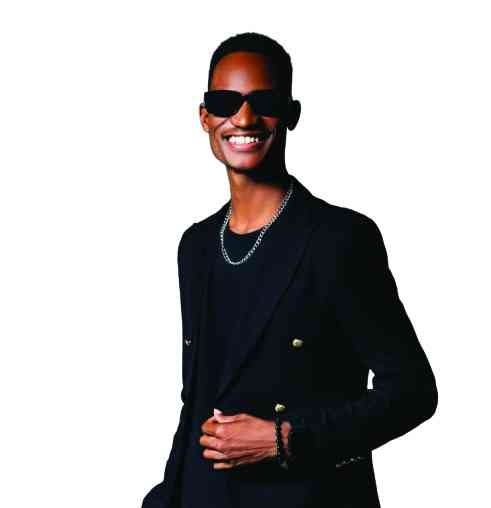
Complaints have long surfaced regarding the perceived marginalisation of Bulawayo artists by local promoters and, notably, tertiary institutions in Matabeleland, with the National University of Science and Technology (Nust) often at the centre of these concerns. A recurring point of contention among students is the consistent prominence given to Harare musicians at the annual Miss Nust pageant. Standard Style reporter Mpumelelo Moyo (MM) recently engaged in an exclusive interview with Blessed Shawn Charlie (BC), the Nust SRC “Entertainment minister”, to delve into this issue.
Here are excerpts from their conversation:
MM: Historically, there have been persistent complaints that during every Miss Nust event, regardless of the ruling SRC, Harare artists are given precedence, including under your current leadership. What is your response to this?
BC: Indeed, there have been ongoing concerns regarding the balance we strike between featuring Harare and Bulawayo artists. From my recollection, during my first year, the line-up consisted exclusively of Harare artists. Upon investigation, I learned that a significant portion of the student body originates from Harare or regions outside Matabeleland.
Consequently, to attract large audiences, we often need to invite artists from Harare, as the majority of attendees prefer them, mentioning names like Holy Ten, Voltz JT, and others. Over the years, this has led to a greater focus on Harare-based performers. Additionally, these events typically operate on tight budgets with limited returns.
To cover expenses, it becomes necessary to engage artists who can guarantee a substantial turnout, which is often achievable by featuring prominent artists from outside the city. However, it's important to note that we do collaborate with local artists such as Noluntu J, MaNine, Mzoe7, and Calvin Mangena, who was part of this year's Miss Nust lineup, as well as Iyasa. They can attest to our collaborations.
MM: You mention working with them, but why aren't they afforded the same level of prominence as their Harare counterparts? Why, for instance, would Noluntu J be a supporting act for Holy Ten rather than the other way around if they are considered equally significant?
BC: I believe the honest truth is that we cannot truly substitute influence.
- Another Zim engineer joins F1’s Mercedes
- ‘Poor Zec reputation putting youths off from voting’
- Police warn against starting veld fires
- Electrical fault at NUST graduation ceremony
Keep Reading
MM: Does this imply that Harare artists possess more influence than Bulawayo artists?
BC: Before organising an event, we conduct surveys to gauge audience preferences; we don't arbitrarily decide to book someone like Voltz JT. Our surveys and polls for headline acts consistently show a preference for currently popular artists. We conduct polls across both regions.
MM: Given that you've mentioned a larger proportion of students and the SRC itself are from outside Matabeleland, would a percentage-based research system be effective in such a situation where the numbers are already skewed? Isn't the outcome somewhat predetermined?
BC: No, you see, it's crucial to understand that despite our desire to potentially favor one group or the other, this is also a business. At the end of the event, we need to generate sufficient revenue to cover costs and have some surplus for future events.
If you examine the lineups of events like Piano Fest and Bulawayo Shutdown, you'll notice they frequently feature artists from outside Zimbabwe as well. Comparing posters from three years ago to the present, you'll observe a shift towards greater inclusivity.
MM: I understand your emphasis on the need to generate profits. However, aren't these events financially supported by the university? Doesn't the SRC develop a budget proposal for the university administration, and doesn't the bursar allocate funds accordingly? Why is there a need to make a profit, and to whom are these profits directed?
BC: Regarding that, I was specifically referring to events like the opening bash. We sometimes experience delays in the disbursement of funds, making it impractical to label it an opening or closing bash when it occurs mid-semester.
Miss Nust is the only event that receives full and timely funding from the bursar. For other events, we often collaborate with promoters who assist with funding. In those instances where Nust isn't directly involved financially, we do aim for profitability. However, for an event like Miss Nust, any surplus funds are redirected towards other beneficial initiatives. For example, this year, we planned to contribute to the construction of our sports pavilion at the Nust grounds and support various charities. Furthermore, we do strive to incorporate Bulawayo talent. While there's an understanding that they should headline some events, we also consider factors like online engagement, such as YouTube views. If we were to have Noluntu J as a supporting act for Holy Ten, it would likely raise questions among the audience. It's not about ranking one artist as superior to another.
MM: If the decision were solely yours, who would you choose as the opening act between the two?
BC: Hmm, that's a challenging question, but I would still lean towards having Holy Ten headline.
MM: You've mentioned conducting research. What feedback have you received regarding your efforts to achieve a better balance?
BC: People are acknowledging the progress we've made in striving for a more balanced representation. Unfortunately, the prominent Bulawayo artists often recognised are limited to figures like Sandra Ndebele, MaNine, and Noluntu J. Consequently, we need to rotate artists to avoid repeatedly featuring the same individuals, such as Calvin Mangena in consecutive events.
MM: It seems you are also familiar with these same artists, given you've mentioned them repeatedly.
BC: No, it's simply that these artists possess remarkable character and exceptional talent.
MM: Alright, congratulations on the successful hosting of Miss Nust and your efforts to provide more equitable opportunities.
BC: Thank you. I hope we can continue to collaborate effectively. Sometimes, emerging artists can become overly demanding after receiving a platform. For instance, an artist we might hire for US$50 initially might later request US$$300. However, we operate on a student budget, and we are all trying to support each other. Ultimately, as long as the student body expresses demand for certain artists, we will listen and work together.










